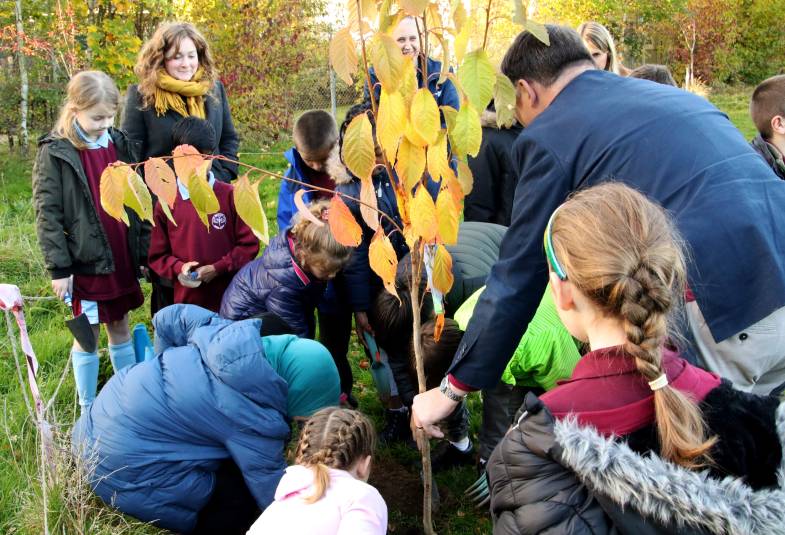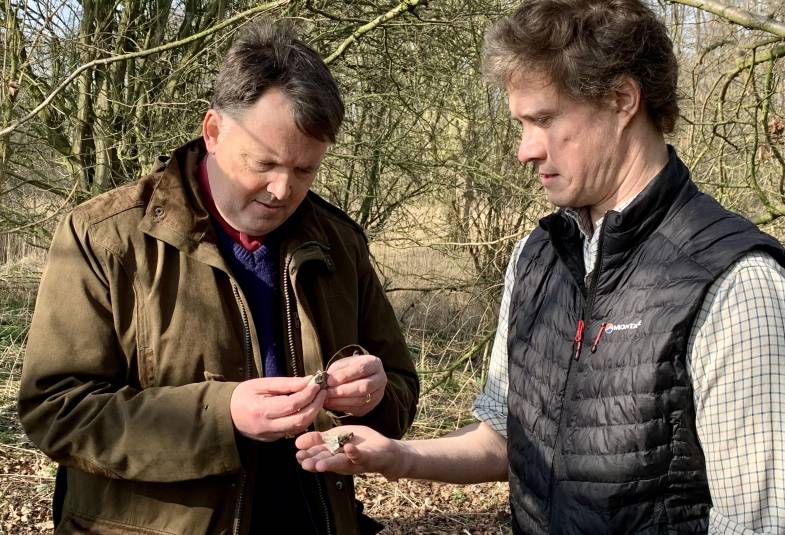05/06/2023

This year, David Attenborough and the BBC, through the Wild Isles programme, reminded many of us of the nature that we can notice on our own doorsteps, populating our rugged coastlines, ancient woodlands, and flower meadows.
When I read the Gospels and hear the stories that Jesus taught, what strikes me is how much he notices – how much he sees of the environment around him. He sees the lilies of the field, the birds of the air, the type of soil that seed is planted in, and the fruitfulness of trees.
“Part of our Christian discipleship is to notice what we’re interconnected with, so that we can wonder at God’s creation and then take action to safeguard it”
Graham Usher, the Church of England's Lead Bishop for Environmental Affairs
Sadly, much of this wildlife is at risk from climate change and associated biodiversity loss. The UK is one of the most nature-depleted countries in the world. 15% of all our species are threatened with extinction, 97% of our wildflower meadows have been lost since the 1930s, and we have lost 492 animal and plant species in England since the 1800s. This can be even more pronounced on a local level – since 1900, one species of plant has been lost every two years on average on a county level.
According to the Intergovernmental Panel on Climate Change, biodiversity loss and degradation, and damages to and transformation of ecosystems are already key risks for every region of the world due to past global warming, and will continue to escalate with every increment of temperature. This crisis of nature is now being recognised alongside the climate crisis as a serious threat to the future of the people and other creatures living on the planet.
Part of our Christian discipleship, as we care for creation, is to notice what we’re interconnected with, so that we can wonder at God’s creation and then take action to safeguard it on this island we call home.
The Church already recognises and treasures the intrinsic value of nature through our Fifth Mark of Mission: ‘To strive to safeguard the integrity of Creation and sustain and renew the life of the earth’.
This is why I welcome the People’s Plan for Nature, particularly the participatory and inclusive processes in its creation, alerting us to the irreplaceable value of nature, the threats which it faces and the need for immediate action.
It’s time to start approaching solutions in a way that meets the seriousness of the situation – and that includes all of us.

It’s often those who have done the least to contribute to biodiversity loss who suffer the most from its impact. We want to ensure everyone has a voice and is empowered to help tackle the climate and nature crises, just like The People’s Plan does. The People’s Plan has included input from over 100 people across all age groups, all education levels, different locations, different ethnic backgrounds and different views on the importance of nature. Listening to these different voices is so important, as is considering nature’s 'voice'.
Later this year, we will mark the Season of Creation (1 September to 4 October) by seeking justice for this myriad of voices. The theme this year is ‘Let Justice and Peace Flow’ – look out for more information and resources closer to the time.
In 2020, the General Synod of the Church of England agreed the goal for the Church to be net zero by 2030, far ahead of the Government’s target of 2050 for the country. Now is the time to be ambitious – we can’t lose any more time in tackling the climate and biodiversity crises.
Our churches and churchyards are at the forefront of this urgent issue, from reducing carbon emissions from our buildings, promoting biodiversity in our churchyards, and encouraging the wider community to consider their own impact on the planet. How might we live more in harmony with nature? Here in Norfolk, for example, churchyards are vital for the survival of six wildflower species, where at least 50% of their UK populations are to be found.
The People’s Plan for Nature is calling for a country where humans and nature are in harmony, nature is valued and respected by all, and we all take individual and collective responsibility to enhance and sustain nature so that all might flourish.
I encourage you to read the plan and add your response. What one thing could you do to show your care for creation today?
Learn more
- Read the People’s Plan for Nature and add your voice.
- Find out about the Season of Creation 2023 and sign up.
- Find out more about the Church of England’s plans to reach net zero by 2030 by reading our Routemap.